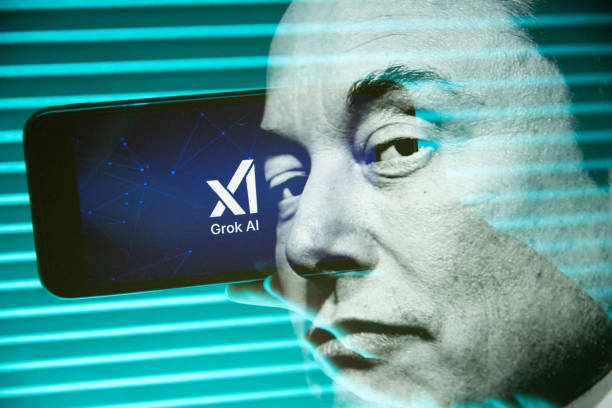
Elon Musk’s xAI has recently found itself wrapped in a controversial trademark dispute over its chatbot name “Grok,” a term coined by science fiction author Robert A. Heinlein in his 1961 novel “Stranger in a Strange Land.” Heinlein explains the word “Grok” to mean understanding something fully and thoroughly.
xAI’s Chatbot Grok has been challenged due to name similarities with existing trademarks held by other entities. The company’s trademark application with the U.S. Patent and Trademark Office was suspended after the agency argued that the name could be confused with two other companies’ names – AI chipmaker Groq and Software provider Grokstream. In addition to these two is another startup called Bizly who has now joined the trademark race and has caught even better public attention.
U.S. Trademark law dictates that a company cannot use a name that is substantially similar to a trademarked product or service in a way that could confuse consumers. This law aims to protect companies from market confusion, and more importantly, avoid confusion amongst consumers.
This particular trademark dispute came to light when Bizly’s founder Ron Shah publicly claimed to own the rights of the name “Grok.” The name, Shah says, was arrived at as a result of a brainstorming session with a colleague who used the word as a verb. “We got excited, high-fived, it was the name!” Shah tells WIRED.
Bizly’s Grok, an AI-powered app created for asynchronous meetings, was already trademarked in 2021, according to its founder. At this time, it was still in its beta stage, where Bizly was conducting a pilot of Grok with Carta, a financial services company.
Shah says they were about launching their Grok app when Musk announced xAI’s Grok. Right after, he claims they lost a round of funding due to investor concerns surrounding a potential trademark dispute. The deal fell apart, and in turn, Bizly’s Grok never made it to the market and is currently not available.
As a result of this, Shah says Bizly is on the brink of shutting down. The AI startup has since filed a complaint, arguing that the similarities between the names could mislead consumers into believing the two products are the same.
However, even as Shah insists that xAI violated trademark laws, he still hopes to find a harmonious solution with xAI, as he’s offering to partner with Musk’s company or go as far as selling the Grok trademark for a reasonable and just price. But he claims no one from xAI has responded to his emails yet.
This incident emphasizes the importance of trademark searches and registrations, a step that many tech startups may overlook during their rapid development phase. As the landscape of Artificial Intelligence (AI) continues to rapidly grow, understanding and navigating intellectual and property rights is becoming increasingly essential.
However, Musk who is known for bending existing rules to his will might win this trademark dispute – as is the case with Apple giving his social media platform an exception on the App Store when Musk changed its name from Twitter to X, a single-character app name.
This trademark dispute is not an isolated incident for Musk as he is not new to the scene. An example is Blade Runner 2049’s producers (Alcon Entertainment) taking legal action against Tesla in 2024 for using obvious AI-generated imagery inspired by the film to promote Tesla’s robotaxi, after Alcon had denied the EV company’s request to use the images.
